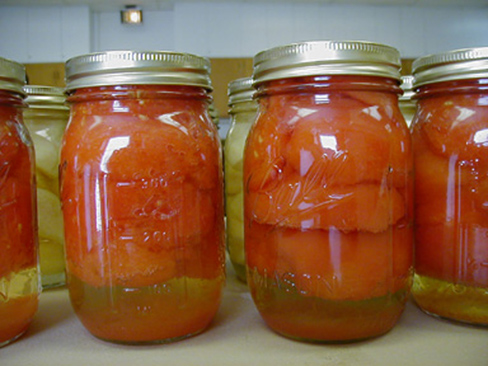Adding Value to Plant Production: An Introduction to Policies and Regulations for KY Producers
“Value-added agriculture” is a broad term encompassing many practices that increase the value of farm products. Such practices often result in the manufacture of food products. Crop producers entering the realm of food manufacturing may become subject to a wide range of policies and regulations. This profile identifies the policies and regulations experienced by many value-added crop producers in Kentucky. This is a summary and is intended only to highlight key considerations for crop producers considering value-added products. Producers should always conduct their own investigation of relevant local, state, and federal requirements for their intended value-added production enterprise.
Marketing New Crop Food Products
Making new food products from crops may require the producer to acquire a range of permits and licenses. The producer may also need to meet regulatory requirements in a variety of areas. A first step to identifying the requirements for a potential new food product is for the producer to identify what agencies regulate their product. One starting point for identifying the regulating agency or agencies is for the producers to answer questions like these about the potential new product: What value-added product will be produced? Who regulates this product? Where will the product be sold? Whowill purchase the product? How will the product be purchased?
Homebased Processing and Microprocessing
 House Bill 391, passed by the Kentucky General Assembly in 2003, allows Kentucky farmers the opportunity to process some of their own food products in an on-farm kitchen for sale at farmers markets, Certified Roadside Stands, and/or on the processor’s farm. Producers must grow the predominate agricultural ingredient used in the product. The on-farm kitchen must be separate from a personal kitchen and inspected by the local health department. Producers may also be able to use a rented commercial kitchen or, in some counties, a commercial kitchen owned and operated by the Cooperative Extension Service. The legislation allows for two certifications: Homebassed Processors and Homebased Microprocessors. Homebased processors may sell jams, jellies, breads, fruit pies, cakes, and cookies after registering with the Kentucky Cabinet for Health Services. Homebased microprocessors may sell low-acid, acidified, and acid foods after (1) attending a Homebased Microprocessor Workshop; (2) having their recipes approved by a designated representative of the University of Kentucky; and (3) submitting and receiving approval of an application and fee to the Kentucky Cabinet for Health Services.
House Bill 391, passed by the Kentucky General Assembly in 2003, allows Kentucky farmers the opportunity to process some of their own food products in an on-farm kitchen for sale at farmers markets, Certified Roadside Stands, and/or on the processor’s farm. Producers must grow the predominate agricultural ingredient used in the product. The on-farm kitchen must be separate from a personal kitchen and inspected by the local health department. Producers may also be able to use a rented commercial kitchen or, in some counties, a commercial kitchen owned and operated by the Cooperative Extension Service. The legislation allows for two certifications: Homebassed Processors and Homebased Microprocessors. Homebased processors may sell jams, jellies, breads, fruit pies, cakes, and cookies after registering with the Kentucky Cabinet for Health Services. Homebased microprocessors may sell low-acid, acidified, and acid foods after (1) attending a Homebased Microprocessor Workshop; (2) having their recipes approved by a designated representative of the University of Kentucky; and (3) submitting and receiving approval of an application and fee to the Kentucky Cabinet for Health Services.

